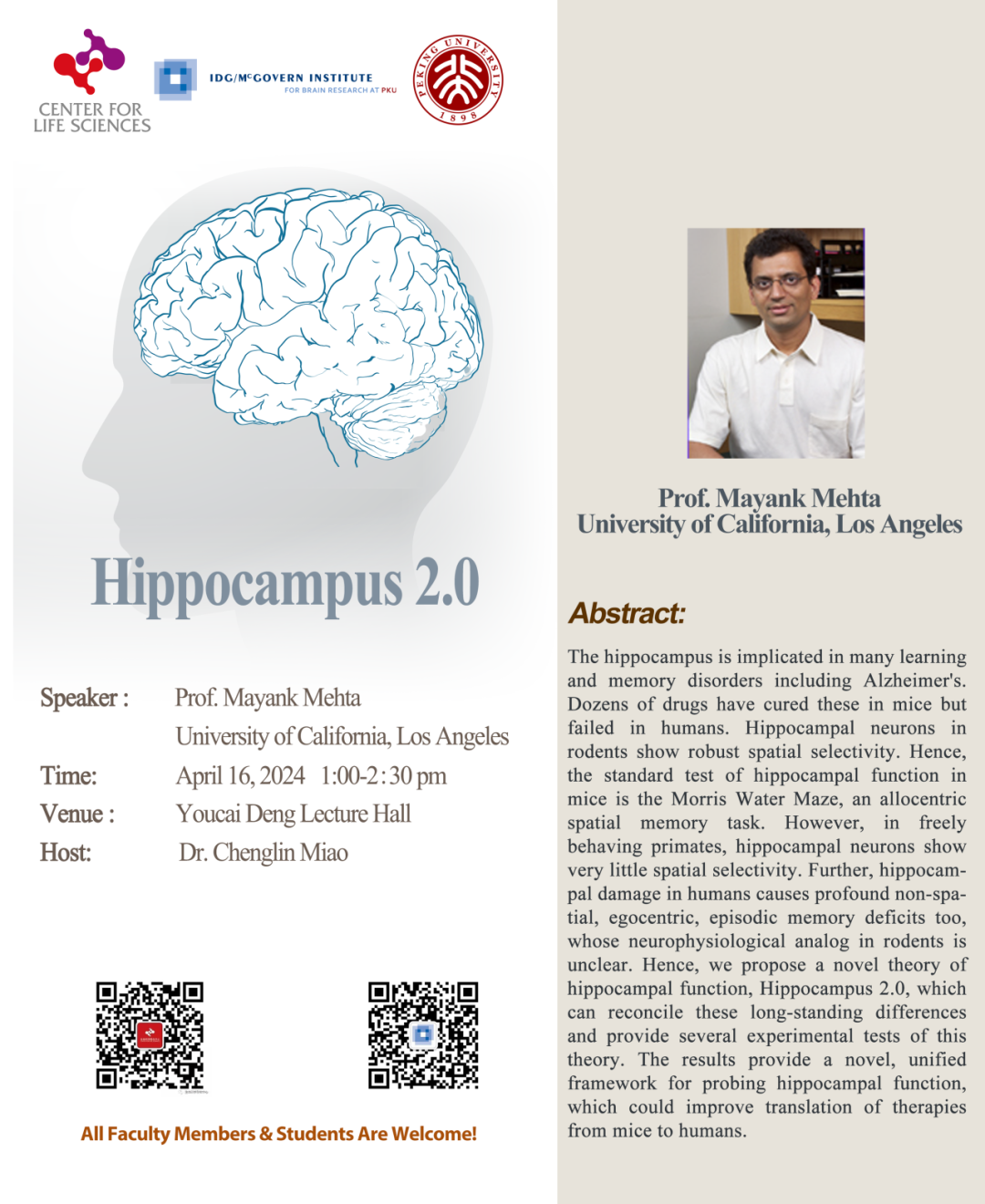
Speaker: Prof. Mayank Mehta, Physics and Astronomy, Neurology, Neurobiology, University of California, Los Angeles
Time: 13:00-14:30 p.m., April 16, 2024, GMT+8
Venue: Youcai Deng Lecture Hall, PKU
Abstract:
The hippocampus is implicated in many learning and memory disorders including Alzheimer's. Dozens of drugs have cured these in mice but failed in humans. Hippocampal neurons in rodents show robust spatial selectivity. Hence, the standard test of hippocampal function in mice is the Morris Water Maze, an allocentric spatial memory task. However, in freely behaving primates, hippocampal neurons show very little spatial selectivity. Further, hippocampal damage in humans causes profound non-spatial, egocentric, episodic memory deficits too, whose neurophysiological analog in rodents is unclear. Hence, we propose a novel theory of hippocampal function, Hippocampus 2.0, which can reconcile these long-standing differences and provide several experimental tests of this theory. The results provide a novel, unified framework for probing hippocampal function, which could improve translation of therapies from mice to humans.
Source: McGovern Institute for Brain Research at PKU
